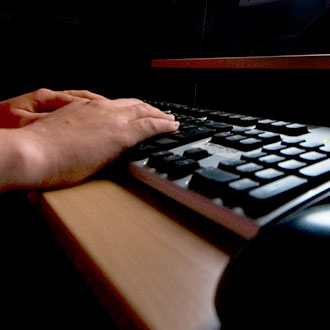GPs urged to immediately decline unwanted patient contact

GPs should nip unwanted contact from patients in the bud, especially on social media, legal advisers have warned.
The MDU said social media has made GPs ‘more accessible than ever’ to patients who may seek unprofessional contact with them.
The GP defence organisation said it has ‘helped around 100 members over the last five years with advice on how to deal with patients making amorous advances’.
It said that ‘a handful’ of these involved the type of stalking behaviour where a doctor may need to involve the police.
MDU medico-legal adviser Dr Beverly Ward said that although ‘that sort of extreme scenario is thankfully rare, it’s not uncommon for patients to want more than a professional relationship with their doctor’.
But she added: ‘With doctors more accessible than ever via social media, amorous approaches from patients can feel intrusive. If they are not nipped in the bud, or even unwittingly encouraged, things can get out of hand.’
She said that ‘amorous advances’ by patients can include ‘receiving unwanted letters and gifts and, more commonly now, text or social media messages’.
The MDU urges members to ‘involve us as soon as becoming aware of a potential problem’, said Dr Ward.
‘In more extreme cases, patients have turned up at a doctor’s work or home. This has the potential to develop into stalking and harassment, with some patients creating a fantasy affair to which the doctor is completely oblivious,’ she added.
It comes as Pulse reported yesterday on the case of GP Dr Eleanor Aston, who suffered through a seven-year stalking ordeal and is now seeking an increase in sentencing for stalking offences.
What to do about unwanted contact?
The MDU’s advice on dealing with amorous advances from patients includes informing management of the situation, and keeping a log of all inappropriate contacts from the patient.
If the GP continues to care for the patient ‘it is advisable to use a chaperone’, the MDU said. Accepting gifts from patients should also be ‘considered very carefully’.
GPs should not use personal email addresses or mobile numbers for work purposes, and should withhold their number if they must use a personal phone to contact a patient. They are also advised to review their social media privacy settings.
The defence organisation also advise involving the police if the health professional feels threatened or in danger.
By warning the patient that their behaviour is inappropriate it may be possible to get the doctor/patient relationship ‘back on a professional footing’. Failing that, the patient may need to be transferred to a different colleague or patient list, MDU said.









